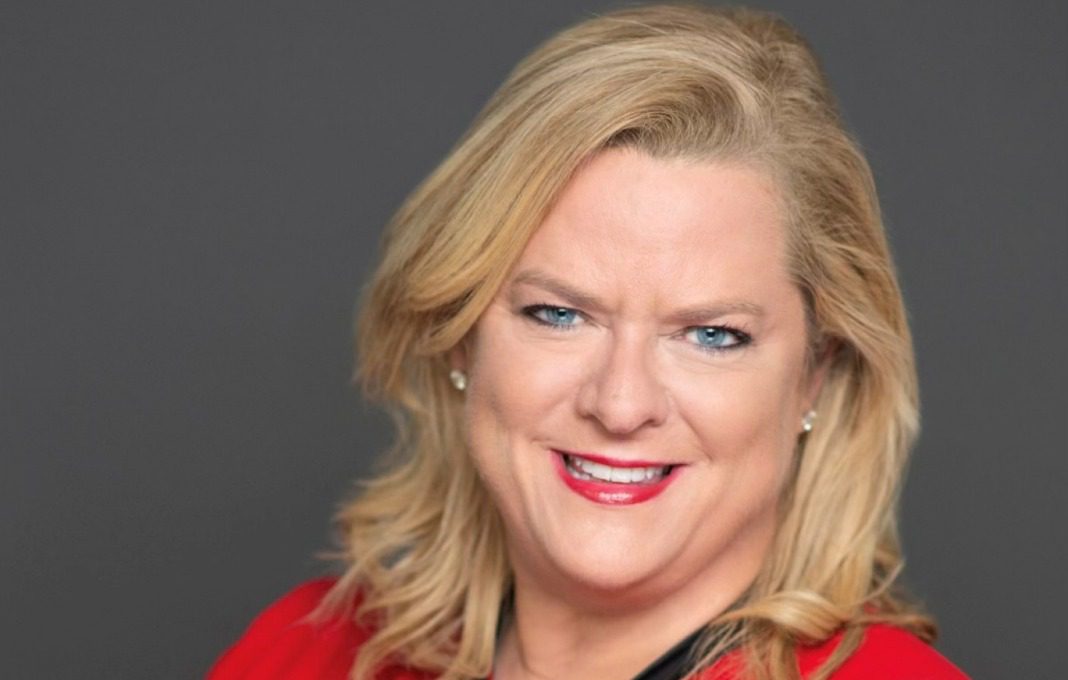Storytelling has been a common competence of the companies along Christina Van Tassell’s journey to prominence as a finance executive. So it was only natural that the CFO of John Wiley & Sons has embraced some of the DNA of her employers in defining how she approaches her responsibilities in an ever-evolving arena of corporate management.
“It’s important to be able to translate some complex and sometimes disparate things into a kind of cohesion that makes sense,” Van Tassell, who has been Wiley’s CFO since 2021, told StrategicCFO360. “Drawing early indicators, talking about insights you can glean from that, and boiling things down into what makes sense, from the strategy at the top level down to employee execution. And you have to figure out ways to make sense of that for people.
“You’re sort of a translator in chief, taking concepts and data and making them into things that are actionable and measurable. That’s how the modern CFO plays today.”
Van Tassell is CFO of a $2.1 billion company that has evolved over more than 200 years from a print shop in New York City, to a publisher known for its business-oriented titles, to a modern-era global leader in scientific research and career-connected education. More than 80 percent of Wiley’s revenues now come from digital businesses and surveys, with 54 percent coming from research and 34 percent from academic lines. The remainder comes from talent development and corporate training.
Acquisition challenges
Wiley’s $300 million acquisition of Hindawi in 2021 made the company a leader in so-called “open research” that aims to broaden access to information in the scientific and academic communities. Hindawi actually tripped up its new parent in the third quarter ended January 31, as an “unplanned publishing pause” at Hindawi, over “compromised articles,” cut year-to-year research revenues by 4 percent. Academic revenues were down by 11 percent over various issues. But Wiley president and CEO Brian Napack declared the company’s “core business and markets [as] strong.”
Van Tassell oversees Wiley’s corporate and financial functions including financial planning and analysis, accounting, investor relations, internal audit, treasury and tax. The Columbia University and London School of Business MBA and Muhlenberg College graduate served as CFO of two subsidiaries of public companies before joining Wiley. She was CFO of Xaxis, a unit of WPP Group, then CFO of the Dow Jones unit of News Corp.
“Dow Jones was a subsidiary of a public company, but it was the first marriage of something I really held dear—which was the Wall Street Journal, something I’d been reading my entire career, even as a student—with advancing a business that I felt passionately about.”
Van Tassell helped Dow Jones through its digital transformation, helping build premium publications and their paywalls, before leaping to Wiley. “I carried the same passion, and I was joining another organization with premium legacy brands that I also thought were special,” she said. “Wiley doesn’t get the credit it deserves for its mark on the world. We’re building our access to knowledge throughout the world through shaping workforces and discovery in scientific research and in education.”
And while it was a major professional leap to come to the front-line financial job of a publicly held company, “I didn’t come to Wiley just for that reason,” Van Tassell said. “I came because I believe in our mission and that I can make an impact. It is definitely a different set of skills to be able to serve multiple stakeholders, and quite challenging. But that lets you really get to the heart of what you need to think about and talk about and execute.”
At Wiley, Van Tassell has done quite a bit of thinking about the role she took on and how she might help it evolve. Some of it is specific to her employer.
“We’re at a phase in our evolution where we’re innovating ourselves and finding new ways to reach audiences and impart knowledge,” she said. “I see myself as playing a part in that and being able to shore up our resources, help deploy capital, help fuel innovation and figure out what to stop doing, as much as what to start doing.”
Also, she has embraced “the public-facing view” of Wiley “and how we’re perceived in the marketplace, and how investors look upon us in our public profile.”
Bean counters and Doctor No
Van Tassell also has seriously contemplated the changing role of CFOs in general, the one she calls translator-in-chief. “The legacy of the old CFO,” she said, “is that they were bean counters and ‘Doctor No.’ But the way I see the modern CFO, we have a full view of the problems we’re trying to solve and of opportunities we’re trying to lean into.
“We’re really connecting lots of dots for the business, looking at data to drive decision-making and glean insights and talk strategy and make that into actual moments. We have to stop doing some things so we can be focused, and impart that discipline to our segment leaders and other leadership.”
For example, Van Tassell said, “We need to look not just at performance and revenues but at [key performance indicators] as early opportunities to flag things.” At Wiley, these KPIs include “things like admissions and enrollments data that will give us a nod to what we can expect in the future” in key markets, she said. Student-enrollment trends, for example, presage major developments for Wiley’s education business.
“We’re also using technology to source data, and using automation to figure out data sets,” Van Tassell said. “That’s helping our decisions.”
Wiley, like most other businesses, has confronted challenges in acquiring and keeping talent. “We’re trying to be a destination for employees, a place they want to work and feel good about their mission and about advancing their careers.”
Unlike traditional CFOs, Van Tassell sees a role for herself in shaping culture. “It’s important for a CFO to have interpersonal relationships, because you can be a coach in a lot of ways,” she said. “You can facilitate interdependency at the top of the trees that no one else in the company can see, except the CEO if they had time. And you’re able to see things we can course-correct here, or get people and groups together over there. You can facilitate dialogues and conversations that help the company operate smoothly and more effectively.”
At the same time, however, as the economy appears to be veering into a recession and after more than a year of coping with record inflation, Van Tassell doesn’t shy away from what might be considered some of the unpleasant legacy responsibilities of her position. This has included keeping a closer eye on unnecessary costs such as certain travel, in an era of the wonders of remote meeting technology, and redundant personal attendance at conferences.
“Cost-cutting is a way of life,” she said. “We look at discretionary items. What things are we spending on that are empty calories? What are things that don’t move the needle?”
But her attention to costs goes deeper and is more holistic. “We try to find creative ways to do things and be more efficient and more effective,” Van Tassell explained. “We like to build an operating system so we do things one time and actually learn from them. We have three segments, but we have shared services, building our knowledge and our discipline not three times but one time.
“While the world currently faces some economic uncertainty, I am proud of how my team has navigated these times to drive continued growth for Wiley.”








